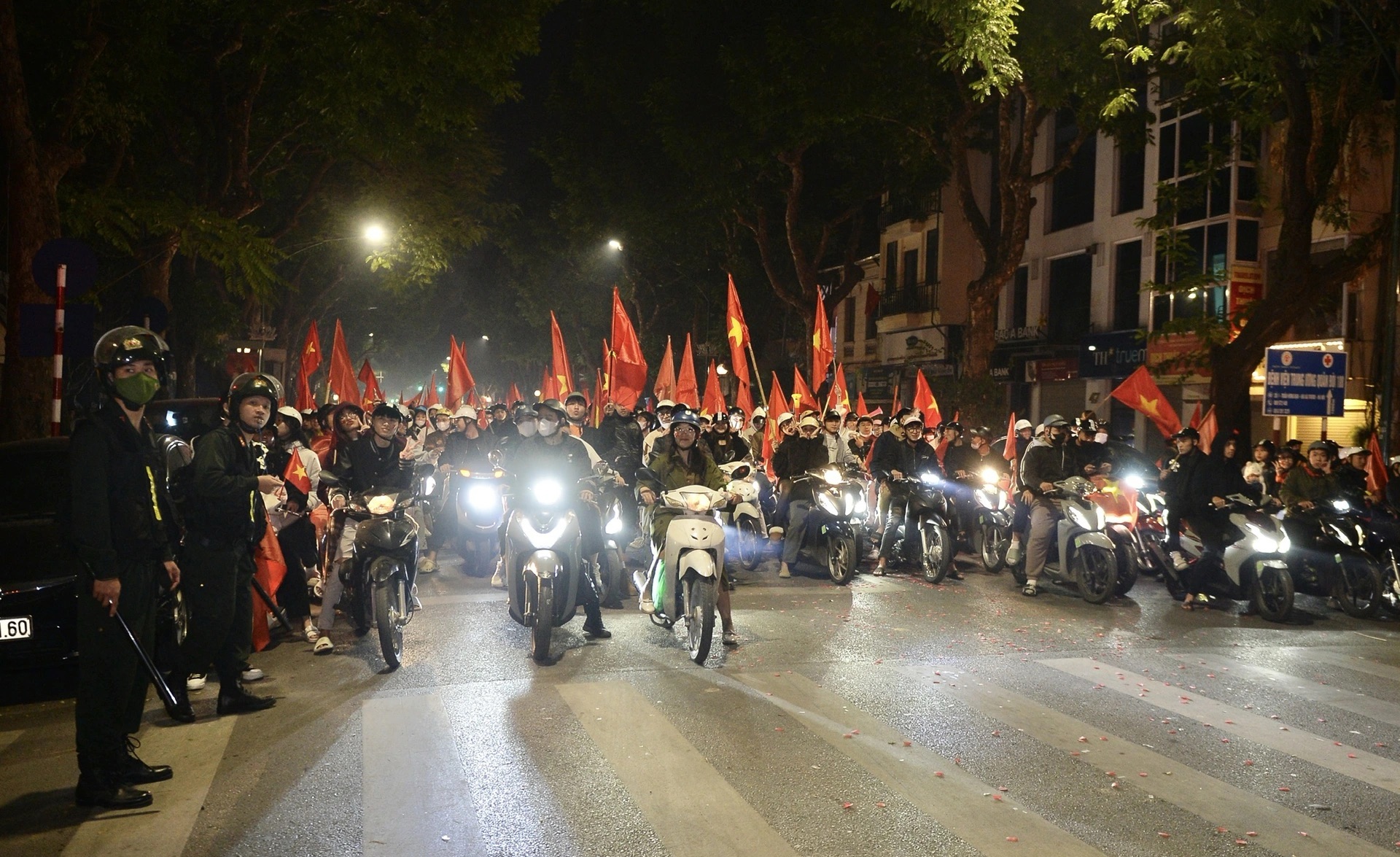The 2024 AFF Cup delivered a stunning 3-2 victory for Vietnam against Thailand, igniting the vibrant “Đi bão” celebrations. On the night of January 5, 2025, the air was alive with chants of “Việt Nam vô địch!” (Vietnam champion!) as motorbikes roared through the streets, flags waved proudly, and the atmosphere buzzed with excitement.
What Does 'Đi Bão' Mean to Vietnam?
The term “Đi bão” translates to “riding the storm,” and while it’s now synonymous with football celebrations, its cultural roots trace back to Vietnam’s long history of community solidarity. Traditionally, the Vietnamese have gathered en masse to mark key moments, from independence victories to Tet festivals.
In modern times, football has taken on a unique role as a focal point for national pride. The Vietnam War and its aftermath left scars, but sport, especially football, became a way for the country to heal and find moments of collective hope. One of the earliest instances of "Đi bão" becoming a national phenomenon was the 2018 AFF Suzuki Cup triumph, streets filled with fans celebrating the championship.

“Đi bão” represents more than just a football win; it embodies a deep sense of national pride and unity. It’s a moment when the entire country comes together, celebrating not only the triumph on the field but also the shared joy and spirit of the Vietnamese people.
Sports As A National Bond
What makes “Đi bão” unforgettable is its inclusivity. Families, friends, and even visitors from around the world join the celebrations, creating a sense of togetherness that goes beyond football. It’s not just about the match—it’s about being part of something bigger. And football acts as a bridge, connecting generations through a common passion.
The spirit of “Đi bão” has become a defining aspect of Vietnamese culture, particularly following significant football events. One of the pivotal moments was during the 2018 U23 Asian Championship, where Vietnam's impressive journey captured the hearts of millions. Although the team finished as runners-up to Uzbekistan, the excitement and pride ignited widespread celebrations across the nation.

Sports As A Universal Bond
The world has taken notice of Vietnam’s unique celebrations, especially through platforms like TikTok. Videos capturing fans on motorbikes waving Vietnamese flags, chanting in unison, and gathering at iconic locations like Hoàn Kiếm Lake have gone viral. Foreigners describe the experience as a “storm of energy and joy,” unmatched in spirit and scale.
One popular video features a young tourist mesmerized by the celebrations, with locals inviting her to join in the festivities. Another highlights the streets of Hanoi illuminated by a sea of red, capturing the sense of community that makes “Đi bão” so distinctive.

A Celebration In Order: New Culture Of "Đi Bão"
This year, the celebrations stood out not only for their scale but also for an increased sense of responsibility among participants. Fans demonstrated a commitment to safety, by adhering to traffic laws and ensuring that the joy of “Đi bão” didn’t come at a cost. Reports highlighted how participants, particularly the youth, were mindful of their actions, stopping at red lights and maintaining order in the chaos.
This positive change stems from the enactment of Decree 168/2024/NĐ-CP on December 26, 2024, which, along with public campaigns for safe celebrations, has enhanced traffic law enforcement. Social media was key in spreading the reminder, with influencers urging responsible partying. The 2025 "Đi bão" season balanced excitement with safety, reflecting increased public awareness.

For those who’ve experienced it firsthand, “Đi bão” is unforgettable, it’s a moment when the nation comes as one, celebrating not just a win, but the unwavering pride in being Vietnamese!



